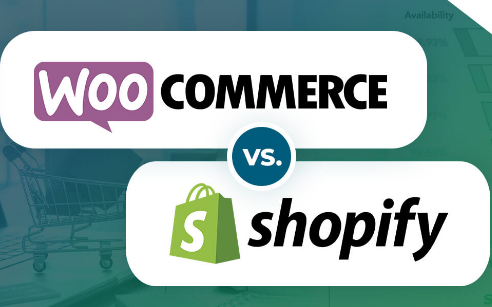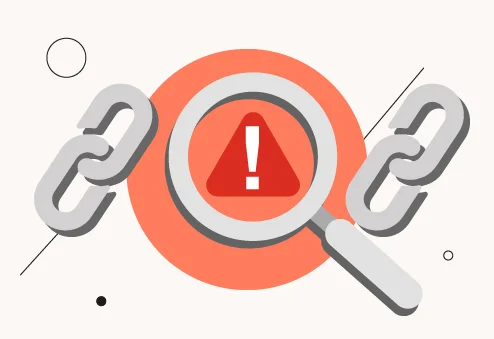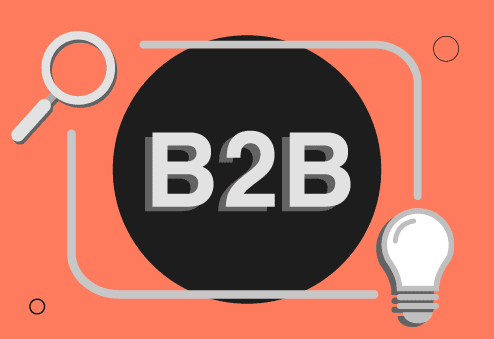Are you an online business owner looking to boost your website’s visibility on search engines? If so, then you’ve probably considered using either Shopify or WooCommerce for your e-commerce platform. Both options are popular and come with their own set of benefits, but which one reigns supreme when it comes to SEO?
In this article, we’ll compare Shopify and WooCommerce head-to-head to determine which platform dominates in SEO. We’ll explore key factors such as website speed, customizable URL structures, page load times, and mobile-friendliness, all of which play a crucial role in optimizing your website for search engines.
So, let’s dive in and find out which e-commerce platform comes out on top in the battle of Shopify vs WooCommerce in the realm of SEO.
Understanding the Importance of SEO for E-commerce
In today’s highly competitive online market, having a strong SEO strategy is vital for any e-commerce business. SEO, or Search Engine Optimization, refers to the practice of optimizing your website to improve its visibility on search engine results pages (SERPs). When your website ranks higher on SERPs, it increases the chances of attracting organic traffic, which can lead to more conversions and sales.
For e-commerce businesses, SEO is particularly important as it directly impacts the discoverability and visibility of products or services. When potential customers search for specific products or keywords related to your business, you want your website to appear at the top of the search results. This is where choosing the right e-commerce platform, such as Shopify or WooCommerce, becomes crucial.
SEO Features and Capabilities of Shopify
Shopify is a popular e-commerce platform known for its user-friendly interface and comprehensive set of features. When it comes to SEO, Shopify offers several built-in tools and functionalities that can help improve your website’s search engine rankings.
One of the key SEO features of Shopify is its ability to generate SEO-friendly URLs. Shopify automatically generates clean and customizable URLs for your product pages, making it easier for search engines to understand the content and rank it accordingly. Additionally, Shopify allows you to edit meta tags, meta descriptions, and alt tags, providing more control over how your website appears in search results.
Another advantage of using Shopify for SEO is its fast and reliable hosting. Shopify hosts your e-commerce website on its own servers, ensuring that your website loads quickly and provides a seamless user experience. Page load times are an important factor in SEO, as search engines prioritize websites that offer fast loading speeds.
Furthermore, Shopify plus agencies offers a range of SEO apps and integrations that can enhance your website’s optimization. These apps provide additional functionalities such as keyword research, content optimization, and backlink tracking, allowing you to further improve your SEO efforts.
SEO Features and Capabilities of WooCommerce
WooCommerce, on the other hand, is a popular e-commerce plugin for WordPress websites. While WooCommerce doesn’t offer as many built-in SEO features as Shopify, it can still be a powerful platform for optimizing your e-commerce website.
One of the strengths of WooCommerce is its flexibility and customization options. Since WooCommerce is built on WordPress, it leverages the vast array of SEO plugins available for the platform. Plugins like Yoast SEO and All in One SEO Pack can be easily integrated with WooCommerce, providing advanced SEO functionalities such as XML sitemaps, social media metadata, and breadcrumb navigation.
WooCommerce also allows you to customize your URL structure, making it SEO-friendly. With the help of plugins or manual configuration, you can create clean and keyword-rich URLs for your product pages, categories, and blog posts. This improves the overall structure and organization of your website, making it easier for search engines to crawl and index your content.
Additionally, WooCommerce offers various optimization options for improving website speed. By implementing caching plugins, image compression, and other performance optimization techniques, you can ensure that your WooCommerce website loads quickly and provides a smooth user experience. This, in turn, can positively impact your search engine rankings.
Shopify vs WooCommerce: A Comparison of SEO-Friendly Features

When it comes to SEO-friendly features, both Shopify and WooCommerce offer a range of capabilities to help optimize your e-commerce website. Let’s compare some of the key features of each platform to determine their strengths and weaknesses in terms of SEO.
Website Speed: In terms of website speed, Shopify has the advantage of hosting your website on its own servers, ensuring fast load times. WooCommerce, on the other hand, relies on the hosting provider you choose for your WordPress website. While there are many high-performance hosting options available, the speed of your WooCommerce website can vary depending on your hosting provider.
URL Structure: Both platforms allow you to customize your URL structure, which is crucial for SEO. Shopify automatically generates clean URLs, while WooCommerce offers more flexibility and customization options through plugins and manual configuration.
Meta Tags and Descriptions: Both Shopify and WooCommerce allow you to edit meta tags and descriptions, giving you control over how your website appears in search results. This is important for optimizing your website’s click-through rates and improving its visibility on SERPs.
Mobile-Friendliness: With the majority of internet users now accessing websites from mobile devices, having a mobile-friendly website is essential for SEO. Shopify offers responsive themes that are optimized for mobile devices, ensuring a smooth user experience across different screen sizes. WooCommerce, being built on WordPress, also provides mobile-friendly options through responsive themes and plugins.
SEO Apps and Plugins: While Shopify offers a range of built-in SEO features, WooCommerce benefits from the extensive library of SEO plugins available for WordPress. These plugins can enhance your SEO efforts by providing advanced functionalities such as XML sitemaps, schema markup, and social media integration.
Factors to Consider When Choosing Between Shopify and WooCommerce for SEO
When deciding between Shopify and WooCommerce for your e-commerce website, there are several factors to consider that can impact your SEO efforts. Here are some key considerations:
Ease of Use: Shopify is known for its user-friendly interface and ease of use, making it a great option for beginners or those with limited technical knowledge. WooCommerce, being a plugin for WordPress, requires more technical expertise and may have a steeper learning curve.
Scalability: If you anticipate rapid growth or have a large inventory of products, scalability becomes an important factor. Shopify offers scalable hosting options, allowing you to easily handle high traffic and large product catalogs. WooCommerce, on the other hand, relies on the hosting provider you choose, so scalability may depend on your hosting plan and server resources.
Integration with Other Platforms: Consider the other platforms or tools you use for your business, such as email marketing services or CRM systems. Both Shopify and WooCommerce offer integrations with various third-party platforms, but it’s important to ensure that your chosen platform has the necessary integrations to support your SEO and marketing efforts.
Budget: Pricing is another factor to consider. Shopify is a fully hosted solution, which means you pay a monthly fee that covers hosting, security, and support. WooCommerce, on the other hand, is free to use but requires additional costs for hosting, themes, and plugins. Consider your budget and the ongoing expenses associated with each platform.
Best Practices for Optimizing SEO on Shopify and WooCommerce
Regardless of whether you choose Shopify or WooCommerce, there are several best practices you can follow to optimize your e-commerce website for SEO. Here are some tips:
Keyword Research: Conduct thorough keyword research to identify the keywords and phrases that your target audience is searching for. Use these keywords strategically in your product titles, descriptions, and other content to improve your website’s visibility on search engines.
Optimize Product Pages: Pay attention to the optimization of your product pages. Use unique and descriptive titles, include relevant keywords in your product descriptions, and add high-quality images with appropriate alt text. Optimize your product URLs and meta tags to improve their visibility in search results.
Create Quality Content: In addition to optimizing your product pages, invest in creating high-quality content that provides value to your audience. This can include blog posts, guides, tutorials, and informative product descriptions. Engaging and informative content not only attracts organic traffic but also increases the likelihood of earning backlinks from other websites, which can improve your search engine rankings. And don’t overlook the SEO value of customer-driven content like referral pages. Tools like ReferralCandy allow Shopify and WooCommerce merchants to launch referral programs that generate shareable landing pages and custom URLs, which can earn backlinks, boost engagement, and drive traffic organically. It’s a smart way to turn loyal customers into both brand advocates and off-site SEO assets.
Improve Website Speed: Regardless of the platform you choose, optimizing your website’s speed is crucial for SEO. Compress images, minify CSS and JavaScript files, and leverage caching techniques to ensure your website loads quickly. This not only improves user experience but also helps search engines crawl and index your website more efficiently.
Monitor Performance and Analytics: Regularly monitor your website’s performance and analyze SEO metrics such as organic traffic, keyword rankings, and bounce rates. Use tools like Google Analytics or third-party SEO plugins to gain insights into how your website is performing and identify areas for improvement.
Conclusion: Choosing the Right E-commerce Platform for Your SEO Needs
In the battle of Shopify vs WooCommerce for SEO dominance, both platforms offer a range of features and capabilities to help optimize your e-commerce website. Shopify provides a user-friendly interface, fast hosting, and built-in SEO tools, making it a great option for beginners or those with limited technical expertise. On the other hand, WooCommerce leverages the power of WordPress and its extensive library of SEO plugins, offering more customization options and flexibility.
When choosing between Shopify and WooCommerce, consider your specific business needs, budget, and technical expertise. Evaluate the SEO-friendly features offered by each platform, such as URL customization, meta tag editing, and mobile-friendliness. Additionally, consider factors like website speed, scalability, and integration options with other platforms.
Remember, SEO is an ongoing process that requires continuous optimization and monitoring. Regardless of the platform you choose, follow best practices for SEO, conduct thorough keyword research, optimize your product pages, create quality content, and focus on improving website speed. By implementing these strategies and choosing the right e-commerce platform, you can boost your website’s visibility on search engines and drive more organic traffic to your online store.





